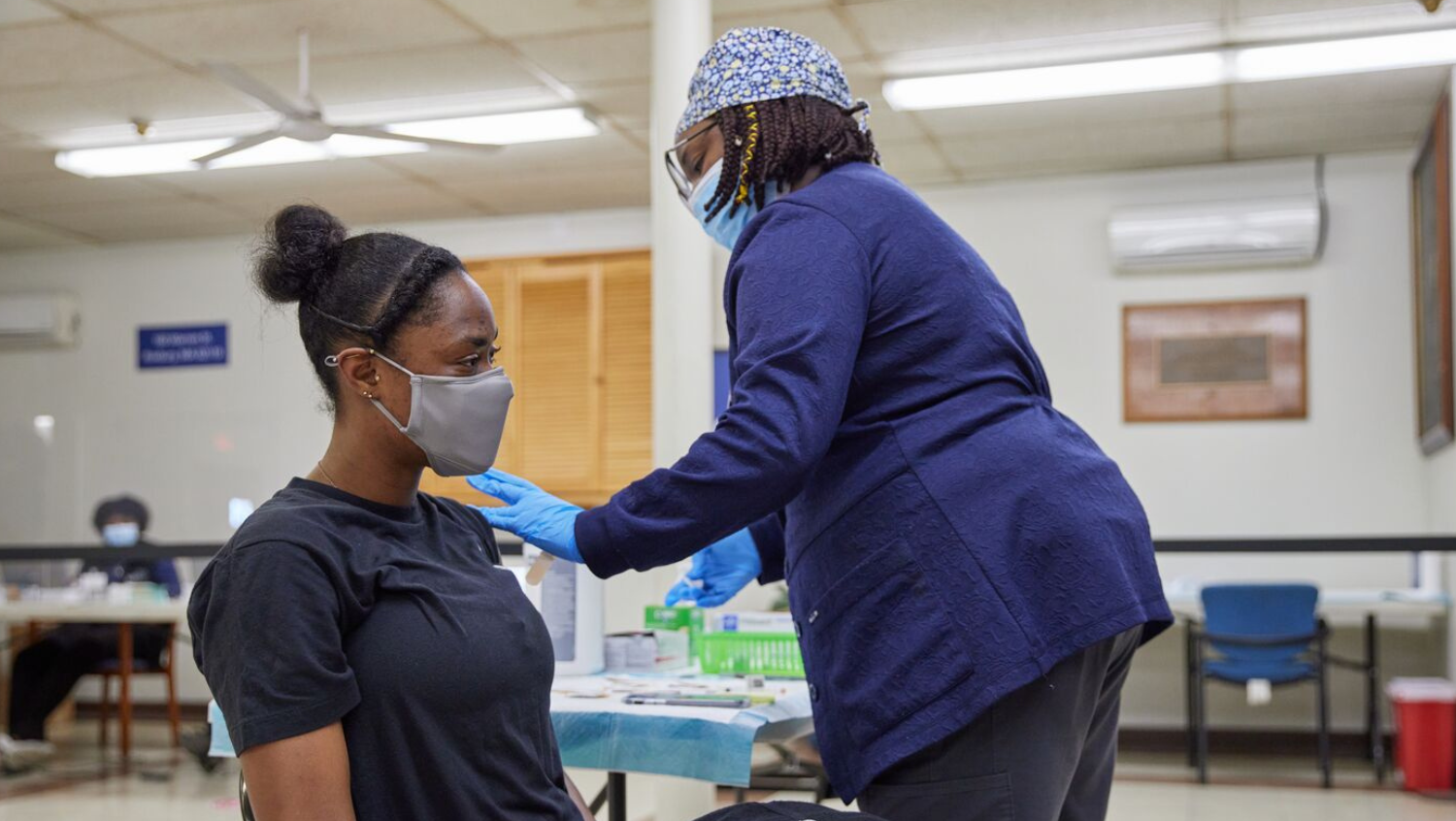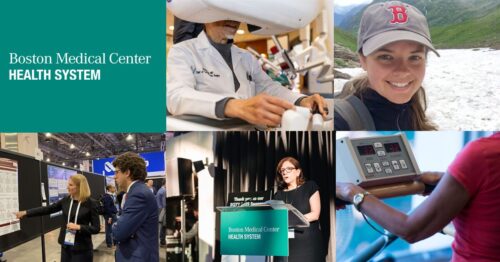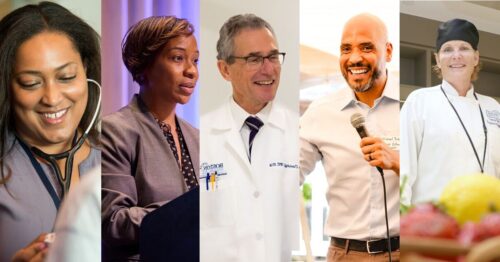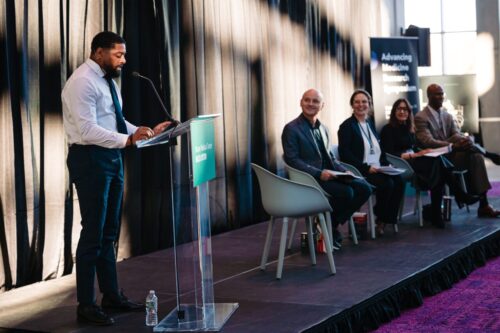How Boston Medical Center's Outreach Built Vaccine Confidence in Underserved Communities
March 7, 2024

Boston Medical Center
Community members getting vaccinated on the opening day vaccination clinic in April 2021 at Roxbury's Twelfth Baptist Church.
The health system's comprehensive communications plan helped 76% of Black and 75% of Latino/a primary care patients get fully vaccinated.
The Bottom Line
Boston Medical Center (BMC) played a critical role in bolstering COVID-19 vaccine access and trust in local Black and Latino/a communities through an intentional, multilingual, and multifaceted campaign. The work may set a model for future public health campaigns, especially in ensuring equity for underserved communities.
Context
Due to historic and systemic racism, Black and Brown communities are often disproportionately affected by poor health outcomes. Further, healthcare systems are less likely to engage with these communities to help narrow these racial health gaps. With COVID-19, in particular, infection, hospitalization, and death rates were disproportionately high among Black and Brown communities, as was vaccine hesitancy. Early in the pandemic, surveys indicated that only 38% of Black people and 53% of Latino/a people planned on getting vaccinated, as compared to 78% of white people.
Study Objective
To build a purposeful communications program as a major component of BMC’s overall COVID-19 vaccine roll-out strategy, and then to test the effectiveness of that program in terms of building trust and creating enthusiasm around the vaccine in historically underserved communities.
The Details
When COVID-19 vaccines first became available in late 2020, BMC collaborated with numerous community partners to effectively roll out vaccinations as well as boost access, addressing the disparate impact of the pandemic on Black and Latino/a individuals as well as in some immigrant communities. Core to that plan was to implement a communications program that would build vaccine confidence and enthusiasm. The program approached the community using an equity lens with a multifaceted and multilingual campaign to provide information, using:
- traditional media and social media channels with trusted community messengers
- consistent and accessible core messaging
- transparent dialogue
- partnerships with state and local health officials
Findings
BMC’s vaccination campaign—including its communications program—was able to fully vaccinate a high proportion of its primary care patients, including more than 30,000 Black and Latino/a individuals. The successful communication program showed that reaching people in many languages through a variety of media—including traditional and social media, community conversations where individuals had an opportunity to ask questions, print, and radio—in this case, had a significant impact on vaccination rates. Lessons learned from BMC Health System’s experience in providing innovative and equitable care during COVID-19 could fill an important gap in building trust in Black and Brown patient populations that have historically encountered systemic racism in healthcare.
Pull Quote
“…[B]uilding trust takes time. Leaders and institutions with an existing relationship within the community can be helpful partners for clinicians, particularly among populations that have specific reasons for mistrusting the medical community….Steady progress in vaccination rates was observed by partnering with the community and by providing individuals an opportunity to have their questions answered.”


